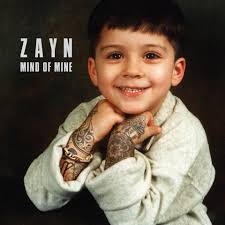It was around ten years ago that top 40 music was having a moment with a genre affectionately known as "R&Bollywood". The music fused together aspects of Western popular music (notably hip-hop, dancehall and, obviously, R&B) with sounds from the Indian subcontinent (bhangra, qawwali and the filmi music of Bollywood). The crossover appeal was huge, and for a brief moment the likes of Jay Sean, Rishi Rich and Raghav reigned supreme; there was even an official bhangra remix of that Britney and Madonna song. While the sounds created during this time persist to some extent amongst South Asian communities, as far as the Western mainstream is concerned, the moment has long since passed.
R&B meanwhile has gone from strength to strength as far as chart appeal goes, though it has evolved a lot in the past ten years. We’re now in a more serious, post-Channel Orange era of ambitious, almost cloyingly cool R&B artists: not only Frank Ocean, but Miguel and The Weeknd. And thus enters Zayn Malik, a British Pakistani youth seeking to carve out a name for himself with an air of legitimacy in the "alternative" music world.
As far as that intent goes, debut Mind Of Mine largely works pretty admirably. This is primarily due to fantastic production from the likes of Malay (of Channel Orange fame) and, tellingly, Alan Sampson – a long-time collaborator with Jay Sean. It’s a polished, atmospheric listen that glimmers undeniably with that R&Bollywood history – yes, there’s a sultry Weeknd-style vibe, but you can just as easily make comparisons with the more laidback songs in India’s recent pop scene: artists like Himesh Reshammiya who blend dissonant and beautiful sufi meditations with western-style beats. On tracks like ‘Rear Window’, Bollywood chorus comparisons are as justifiable as Timberlake ones.
In sheer length there’s a decadence to it – the deluxe edition of Mind Of Mine is 18 tracks long. It means that in places the album drags, not unlike a self-indulgently long Bollywood film. It’s odd because euphoric ‘Like I Would’ – the tune most likely to gain the accolade "banger" – ends up shoved into the deluxe bonus tracks. Zayn might have benefitted from being told to cut the weak links for a cleaner listen – ‘Lucozade’ seems a sparkly piece of pop, but it’s track 13 and all the gorgeous production has started to merge into one, and your patience for Zayn "subtly" addressing weed and sex might have worn a bit thin.
On the subject of subtlety, the lead single was, of course, worldwide smash ‘Pillowtalk’ (stylised as ‘PiLlOwT4lK’ because all the song titles are bewilderingly terrible and seemingly bank on the idea that iT’S ArTiStIc To TyPe LiKe ThIs). The production is engagingly textured, his voice is even powerful, and the song is gratingly catchy. Lyrically, however, it is at points laughably, apparently unknowingly puerile, as though Zayn genuinely believes the hallmark of his newfound maturity is in his ability to talk about "fucking" a lot. This, incidentally, is something of a theme throughout the album – in a track with Kehlani he boasts, "I’ll get her wetter than ever". But maybe it’s unfair to call him out when Miguel has a song about infidelity that refrains, "tell me that the pussy is mine" – it’s cartoonish, yes, but there’s perhaps something to be said for getting to the point. Jay Sean and Raghav weren’t exactly renowned wordsmiths either – but it’s hardly as if all pop is poetry, and the conflation of "Eastern" and "Western" sounds can attain something important regardless.
The most striking example of this is ‘Intermission: Flower’, a calming, soft focus track that spans less than two minutes and finds Zayn singing surprisingly decently in Urdu. In a time of scaremongering and isolation from the far-right, it’s a welcome addition for a huge pop star to remind people that to be non-Western, or to be Muslim, is not something scary. It’s a reassuring, quiet politics that reaches out, and he ought to be commended for it.
Mind Of Mine is an impressive enough debut, with excellent, laidback production and assured vocals. It’s lyrically stunted, it’s too long, and the overall sound is not starkly original, but the subtle elements of South Asian sounds set a promising tone of fusion. With hints of tabla, languid echoes of synths and soaring falsettos with melismatic melodies that don’t sound unlike qawwali, when this album is at its best, it puts in place something quite promising for Zayn Malik’s future. He just needs to grow up a bit first.


